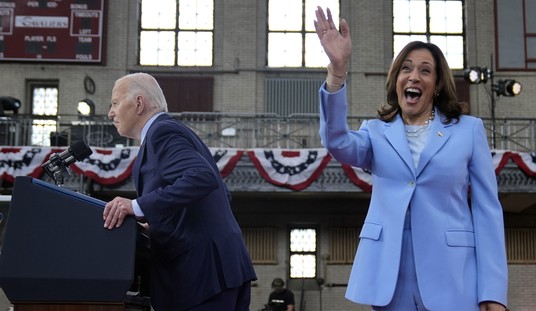The collective knickers certainly are in a twist. People who had never heard of the insurance giant AIG 15 minutes ago are suddenly in a swivet over the bonuses being paid to some of its executives. According to a Drudge Report headline “AIG outrage has employees living in fear.” Meanwhile, Obama is calling for sweeping new regulation of executive pay at banks, hedge funds, and “other companies.” What an opportunity! An economic situation that features not only public fear but also public anger. Believe me, we’re going to be treated to a lot of moralizing lectures about the evils of “greed” from our elected representatives not to mention journalists from establishments like of The New York Times. The whole skit reminds me of that classic performance by Representative Maxine Waters endeavoring to grill executives from Citibank, Bank of America, et al. She was so outraged at the idea that they were paying themselves fees from the money Congress had expropriated from the taxpayers that she did not mind making a fool of herself by demonstrating beyond cavil a complete ignorance about the banking business. The best scene is four or five minutes in to the clip when the CEO of Bank of America says: “I have no idea what you are talking about.” Really, it was a choice moment.
But back to AIG. Last fall, the company got a huge government bailout worth some $170 billion. The company recently awarded derivative traders in one of its subsidiaries $165 million n bonuses. Was that a bad thing? More to the point, was it an avoidable thing? This is the question the redoubtable Edward Jay Epstein asks, and his basic answer is no, it wasn’t avoidable.
As Epstein explains, for more than a decade some 400 traders in a London-based subsidiary of AIG have managed $1.6 trillion in derivative contracts for the company. It’s an interesting story:
In 1998, this tiny group got into the newly-created credit default swap business when JP Morgan Chase came to it with a proposition to transform debt on its books into security packages that could be sold off its books. To make these bank debt packages salable to other institution, they needed credible insurance against default to get Triple-A rating. So the AIG financial product group, seeing no risk of default, sold it in the form of credit default swaps. Soon afterwards, with the support of Treasury Secretary Lawrence Summers (now President’s Obama’s economic advisor), the Commodity Futures Modernization Act was passed, which excluded credit default swaps from being considered a “security” under the jurisdiction of the SEC or any other government agency. This act allowed these swaps to be deployed on a massive scale to convert all kinds of debt, including even subprime mortgages and car loans, into triple A securities and turned AIG’s arm, now headed by Joseph J. Cassano, an aggressive Brooklyn-born alumni of Drexel’s back office operations, into a multi-billion dollar profit center for the insurance behemoth. Even though the unit’s 400 or so traders constituted less than one-third of one percent of AIG’s loyal employees, it produced close to twenty percent of its total operating profits. While Cassano kept the list of his counter parties in the credit default swaps a closely held secret, he bragged at a conference in 2007 that they included a global swath of “investment banks, pension funds, endowments, foundations, insurance companies, hedge funds, money managers, high-net-worth individuals, municipalities and sovereigns and supranationals.” By 2006, his group was raking in nearly $4 billion in profits, and, as is the tradition in the derivative game, he and his traders got a rich cut of the loot, which on average amounted to roughly $1.1 million a trader.
So far, so good, right? No complaints then. These guys were coining money and a lot of people got rich, spent their money, and made a lot of people happy.
But into every life a little rain must fall. Epstein continues:
With the collapse in 2008 of the debt AIG was insuring, came such massive losses that Cassano resigned, and AIG, unable to post collateral, faced bankruptcy. At this point in September 2008, the US government rescued AIG, pouring in $173 billion of tax payers’ money. Even so, there remained a $1.6 trillion in potential liabilities that could be triggered by thousands of the credit default swap contracts, many of which would not expire until 2012. To prevent hundreds of billions of losses, these custom-designed contracts had to be continually watched, and, if necessary hedged, by traders who understood each one’s particular vulnerability.
So what would you do if you were Obama, Maxine Waters, or some other moralistic scold? Deplore the bonuses? Easy to do, but at what cost?
All those complex contracts: who was going to deal with them?
To perform this critical task, the remaining 370 or so remaining traders in the group wanted the same sort of guaranteed compensation in the form of retention bonuses as had in their two year contracts. The situation for AIG, and the US government that now owned 80 percent of it, was not unlike the one in Mario Puzo’s Godfather in which an offer is made that cannot be refused. In this case, even without a bloody horse head under the blankets, AIG and its federal overseers could not risk falling into a $1.6 trillion black hole by turning down the demands of the traders in the financial product group. It was not that these traders had such unique skills in managing derivative contracts that they could not be replaced by other people but that they knew the business’ crucial secrets, including the identities of he counterparties to the credit default swaps and the vulnerabilities in their positions. The implicit threat: they could use the secrets to which they were privy to trade against AIG’s positions as it attempted to unload its $1.6 trillion dollar portfolio.
Maybe, all things considered, AIG did the right thing, the prudent thing, the fiscally responsible thing?
Under these circumstances, rather than risking immense losses from having their secret book compromised, AIG paid to keep its traders from defecting. Their compensation, when approved by the Fed and Treasury, would amount to about $500,000 a trader a year ( less than half what they had been getting in 2008.) The staff at the NY Fed, while Timothy Geithner was still its head, in fact helped negotiate the terms for these retention bonuses. When Geithner moved on to become Treasury Secretary in January 2009, he presumably understood how financially dangerous it could be to do otherwise, since he intervened with the Senate Banking Committee Chairman in February to get a provision dropped from a bill that would have prevented AIG (and other recipients of federal money) from paying such huge bonuses. In fairness to Geithner, the alternative to making these pay-offs might have proven a thousand times more costly to AIG, and its defacto owner, the US Government.
Moralistic outrage can be a delicious emotion. But it is worth making sure that you have the right target before going to town with it.
* * * UPDATE * * * Be sure to read this letter by Jack deSantis, an executive vice president of AIG financial products unit, resigning his position:
I am proud of everything I have done for the commodity and equity divisions of A.I.G.-F.P. I was in no way involved in — or responsible for — the credit default swap transactions that have hamstrung A.I.G. Nor were more than a handful of the 400 current employees of A.I.G.-F.P. Most of those responsible have left the company and have conspicuously escaped the public outrage.
After 12 months of hard work dismantling the company — during which A.I.G. reassured us many times we would be rewarded in March 2009 — we in the financial products unit have been betrayed by A.I.G. and are being unfairly persecuted by elected officials. In response to this, I will now leave the company and donate my entire post-tax retention payment to those suffering from the global economic downturn. My intent is to keep none of the money myself.
I take this action after 11 years of dedicated, honorable service to A.I.G. I can no longer effectively perform my duties in this dysfunctional environment, nor am I being paid to do so. Like you, I was asked to work for an annual salary of $1, and I agreed out of a sense of duty to the company and to the public officials who have come to its aid. Having now been let down by both, I can no longer justify spending 10, 12, 14 hours a day away from my family for the benefit of those who have let me down.
The New York Times publishes the entire letter here. As Glenn Reynolds notes — linking to a piece by Mark Steyn commenting on the letter — it might be a communication from John Galt.








Join the conversation as a VIP Member